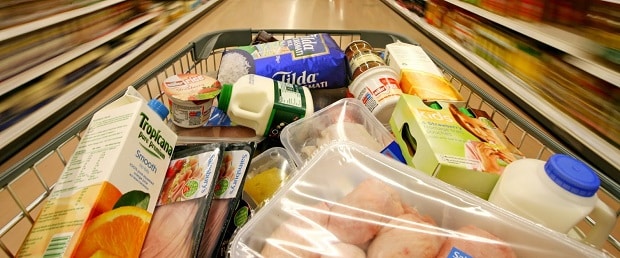Tips on how to eat balanced meals and keep within your means
If you have a family to feed, balancing your monthly grocery budget can sometimes be a challenge. With the price of food soaring and healthy foods seeming to be even more expensive, it can be a monthly struggle to eat balanced meals within your means. But sometimes careful planning does help you to save money.

Plan your grocery list
- – Plan your meals a week ahead and then prepare your shopping list. The fewer trips you make to the supermarket, the less likely you are to be tempted to buy extra stuff. Also try to organise your shopping list according to the aisles in your local grocery store to avoid unnecessary moving around the aisles, wasting time and buying unnecessary things.
- – Avoid shopping on an empty stomach. Eat well before you shop. This prevents you from buying foods not on your list just because you’re hungry.
- – Be supermarket savvy and watch out for specials. Look at the latest catalogues before making your shopping list.
- – Use coupons if you have some. But, avoid buying unnecessary items just because you have a coupon or it is on special.
- – Try to shop alone and leave the kids at home if they are old enough, or there is someone to take care of them. Shopping alone reduces unnecessary purchasing.
Generic brands
- – Buy generic brands or local store brands for foods like rice, pasta, eggs, milk, cottage cheese and frozen fruits and veggies. They are just like brand name foods once you get used to the taste, but they’ll save you heaps of money.
- – Try not be taken in by the fancy packaging as this might cost you more money, and some of the foods in plain packing might be better.
Shop smart
- – Buy in-season fruits and vegetables. Food grown in-season tastes better and is cheaper. Also compare prices of frozen or canned fruits and veggies as sometimes these are cheaper and are a convenient alternative when you’re short on time. They are just as nutritious as the fresh variety, so be sure to keep some on hand in the freezer.
- – Compare prices of similar products by comparing the unit prices. The unit price will tell you how much an item costs per 100 grams or per piece or litre, which helps to better compare similar products.
- – Seafood doesn’t have to be expensive. Try buying canned tuna, salmon, or sardines – they store well and are a low cost option.
- – Substitute ingredients and use lentils and beans as a source of protein as these are less expensive than meat.
- – Buy block cheese and grate it yourself.
- – Eggs are affordable, and versatile and can be used in any meal.
- – Contrary to popular belief, healthy foods are not always expensive. A bowl of oats for breakfast will cost you less than a muesli bar full of sugar, or a muffin.
- – Try and buy low GI carbohydrates, even if these are sometimes a bit expensive, as these fill you up and you stay fuller for longer. These might turn out to be cheaper than processed foods and you end up eating smaller portions.
Bulk buy and cook
- – Buy in bulk – especially when there are promotions and specials. Foods like pasta, rice and oats are easy to stock as these do not spoil quickly. If they’re on sale, buy as much as you can afford and store.
- – To lower meat costs, buy the family-sized or value pack and make small packs and freeze what you don’t use.
- – You can cook extra serves and freeze these into small batches. This can save you a lot of money and time when you need to have meals in a hurry and prevent you from spending money on takeaways.
Limit takeaways and pre-packaged foods
- – Although takeaway food or ready meals can be convenient, there’s no doubt that home cooking is the cheaper option – plus it’s usually healthier too.
- – Preparing and taking your food with you is much cheaper than buying from school canteens or shops.
Limit junk foods
- – Try to limit junk foods and drinks to special occasions and small amounts.
- – Drink water instead of juice or sweetened drinks, it’s free and has no kilojoules.
- – Buy all the basic foods such as breads, dairy, fruit, vegetables, cereals and meats first before considering snack foods, lollies, sweetened drinks or other treats, which helps to keep your trolley full of healthy foods.
- – If you would really like to have treat foods, buy the smallest amount that will satisfy you.
Maintain a kitchen garden
- – Maintain a small kitchen garden or, if you have space, in your backyard, and grow some vegetables. This saves you money and adds freshness and flavour to your meals.
- – You can also grow some herbs and veggies in containers or small pots on your balcony or terrace.
With a little planning and awareness we can save a lot of money as well as enjoy a healthy diet.




